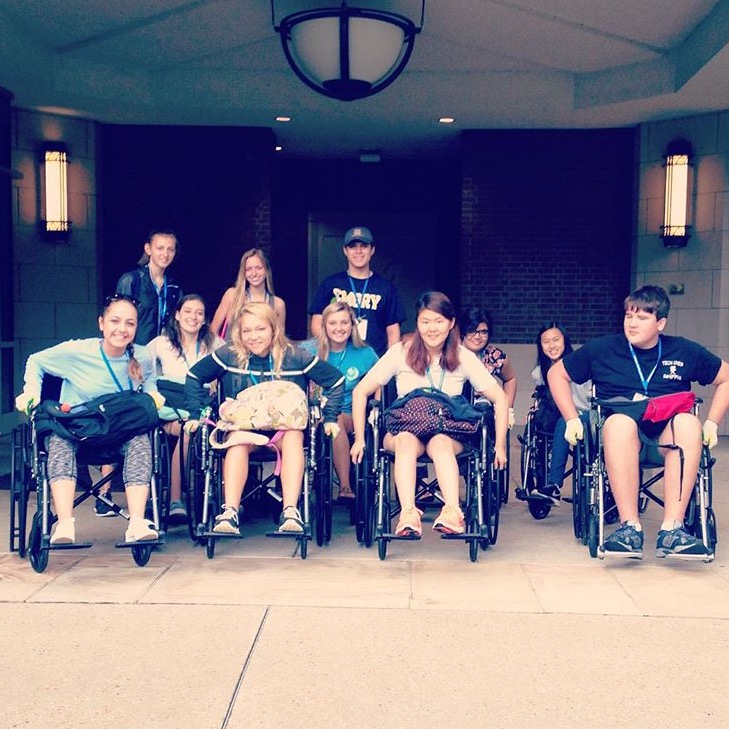- California Assembly OKs highest minimum wage in nation
- S. Korea unveils first graphic cigarette warnings
- US joins with South Korea, Japan in bid to deter North Korea
- LPGA golfer Chun In-gee finally back in action
- S. Korea won’t be top seed in final World Cup qualification round
- US men’s soccer misses 2nd straight Olympics
- US back on track in qualifying with 4-0 win over Guatemala
- High-intensity workout injuries spawn cottage industry
- CDC expands range of Zika mosquitoes into parts of Northeast
- Who knew? ‘The Walking Dead’ is helping families connect
A New Perspective: From the Wheelchair
From a young age, we are conditioned to believe that everybody is different, and that difference is normal. Society is expected to respect these differences.
But there arises a contrast when it comes to people with disability. They are inherently treated differently, regardless of society’s intention.
I was able to experience this from a new perspective this summer. At Vanderbilt University’s Medicine, Health, and Society program, students were challenged with a 24-hour experience confined to a wheelchair. Though one day is not nearly enough to fully understand the entire spectrum of hardships that come along with a wheelchair, it was an eye opening experience, especially from a social aspect.
Going in, my fellow classmates and I expected physical hardships. We wore gloves to prevent welts, and knew that after a couple hours of wheeling around, that our arms would be sore. However, we did not expect the social hardships that soon came our way.
Even as we carried out our daily routines, we quickly felt different. When in the cafeteria, we were often offered help, given looks of pity, and an aura of inferiority was built around us. This type of behavior from those around us who didn’t know that we were a part of an experiment was well mimicked by others in various places. On many occasions, I caught people staring, and then following up by going out of their ways to make it known that they were no longer staring.

At Vanderbilt University’s Medicine, Health, and Society program, students were challenged with a 24-hour experience confined to a wheelchair.
Though they were probably acts that stemmed from intent to be polite, they made me feel at fault, and thereby made me feel a lesser human being.
According to Sal Gonzalez, an amputee who lost the lower part of his left leg as a gunner in Iraq, this sentiment is common among the people with disability.
“We want to be treated like everybody else,” he told my class. “A common misconception is that people think it’s the nice thing to do by putting on a mask when dealing with the disabled.”
Gonzalez went on to further say that many individuals with disability would rather be questioned about why they are in their predicament, rather than having it be ignored altogether, and left as an “elephant in the room.”

















kelly
November 27, 2017 at 11:22 AM
yes..I like the basic concepts behind Second Life but it seems incredibly outdated and when I played it was intensely non-intuitive / user friendly to an extent that made EVE look like a game for toddlers. thanks from
togel online